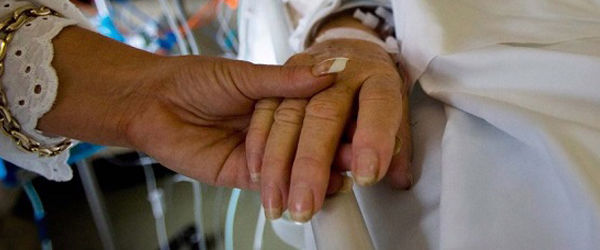And it’s not just that some religions wage a constant holy war against other religions; there are also strong disagreements within religions. Some branches of Christianity, for example, feel that others are invalid and dangerous.Indeed, if you were to look at the world of religion from the outside, you might come to the conclusion that each one thinks it represents the purest form of devotion to a supreme being or truth, and that others should be rejected and disbanded. In our own church, we are often focused on who is against us, and who should not be allowed to call themselves Catholic Christians.Today we celebrate Pentecost, the dramatic unleashing of the Holy Spirit through the first Christians. Jewish believers from all over the world are gathered in Jerusalem and the disciples feel a rush of wind, see a wheel of flame, and find themselves speaking eternal truth in a language and manner that all the gathered people can understand.For a moment at Pentecost, all people of faith speak the same language and worship the same creator and Lord. It is a breathtaking moment of inclusion that we desperately need in our own world.While the “special effects” often capture our attention in today’s celebration — the mighty wind, the tongues of fire — perhaps the real miracle and real lesson of Pentecost is the understanding and openness that takes place. It would seem that God is unleashing a Spirit of inclusion and acceptance, not superiority and conformity. God doesn’t seem to want to keep anyone away from the message of love, compassion and forgiveness; rather God wants to make it unmistakably clear.The good news of Pentecost is that the love of God is not restricted to the structures we create to manage our spiritual lives. God’s love is not limited to language, culture or even religion. For a moment at Pentecost, all people of faith speak the same language and worship the same creator and Lord. It is a breathtaking moment of inclusion that we desperately need in our own world. It may seem unreasonable to expect anything like this in our contemporary society, where polarization seems to be the main form of public discourse. Character assassination has come to be expected in any debate. It’s no wonder that the endgame for some communities is hatred and violence. I don’t mean to be naïve and propose that this is all going to go away with one breath of the Holy Spirit, but maybe you and I can start by trying to understand our neighbors who hold different political, social or religious views. Maybe we can try to listen in their language, and ask that they do the same for us. God knows, it isn’t easy. Listening is a lost art as it is, and we all have our “buttons” that, when pushed, cause a strong reaction. It may take a miracle that may not change the world, but can transform our lives and relationships.Bill Peatman writes from Napa. He may be reached at [email protected].

